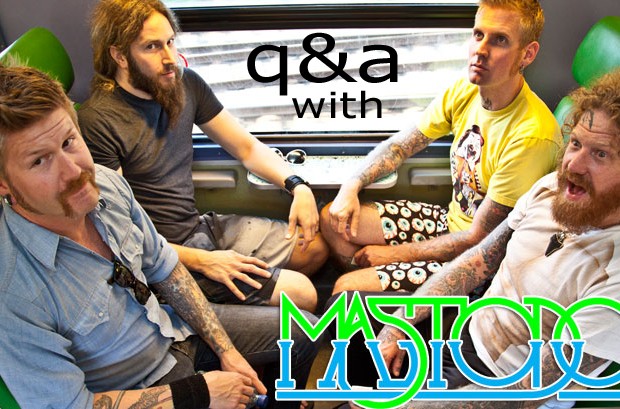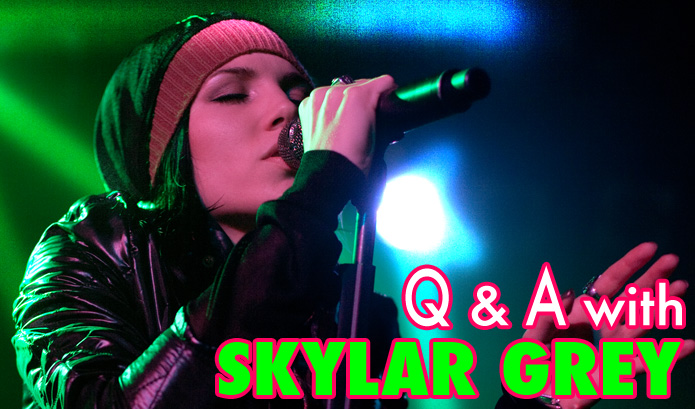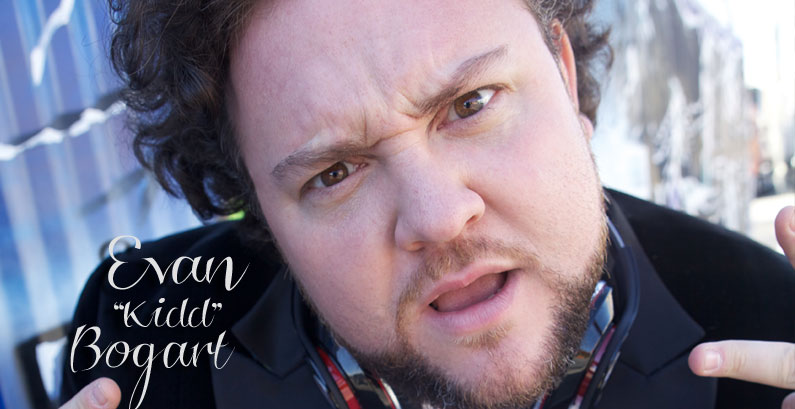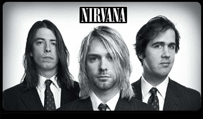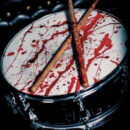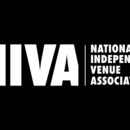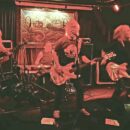By Oscar Jordan
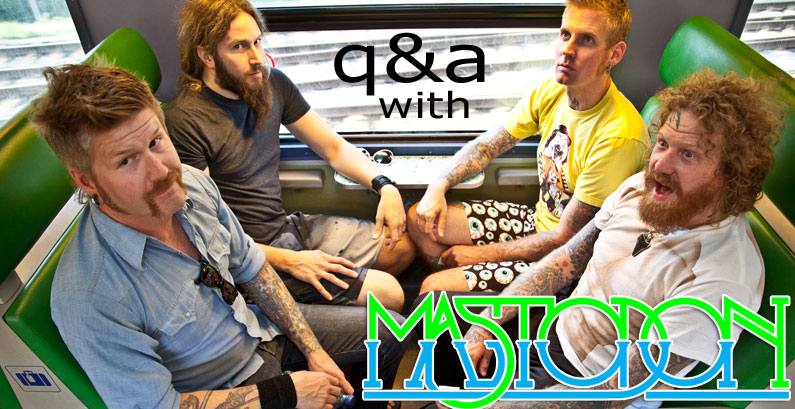
When Mastodon bassist Troy Sanders was asked where he fit stylistically between the band’s prog, psychedelic and metal influences, he responded, “I’m the guy who shows up with a six-pack of beer and makes everyone happy.” He’s modest, but in truth he’s the glue that holds it all together. Sanders also supplies powerful bass playing, spine tingling vocals and stellar songwriting chops. He’s a key ingredient to the band’s success.
The Atlanta, GA band’s fifth album, titled The Hunter, is doing great business and continues to excite longtime fans while reeling in new ones. The Hunter is a departure as Mastodon leave behind their propensity for epic long-form concepts, to embrace shorter songs, stronger melodies and spacious production values. MC caught up with Sanders to get the inside story on the making of The Hunter, and the secret to the band’s success.
Music Connection: Where do you come from as a musician?
Troy Sanders: My mother played classical music and still does, in a four-piece wind instrument band. My older brother Kyle joined a band when he was in high school. I saw him playing covers by Heart, Cheap Trick and Van Halen. At that moment I said, “That is the coolest thing in the world.” I completely made a sharp left turn in my life at that young age, and decided that’s what I wanted to do. I’ve been barreling straight ahead ever since.
MC: Did you have any bass heroes back then?
Sanders: At a young age Gene Simmons scared me and that was an excellent frightening moment. I wanted to be like Michael Anthony in Van Halen, but basically I wanted to be like my older brother. Funny thing is, Kyle is left-handed so I remember taking his Lotus bass and flipping it around and playing it backwards. That’s how I got my first taste.
MC: Did you take lessons?
Sanders: No. Basically I became an introvert, locked myself in my bedroom, and just listened to Van Halen, Guns N’ Roses and Kiss. I just tried to pick out the bass and follow along. It’s what started my ear. I’m completely self-taught. I had a massive fire in my belly that ignited me to just want to sit there and learn this craft.
MC: Can you think of any music back then that you were trying to play that connects to what you’re doing now?
Sanders: My first real accomplishment after months and months, was that I could play along to the first three Metallica records. That made me feel really good. I felt like I achieved something. That was Kill ‘Em All, Ride The Lightning and Master Of Puppets. At eight I could play all three of those records from front to back. Obviously not as well as Cliff Burton, but I got the gist of it, and got a feeling of accomplishment at that point.
MC: In terms of ideas and concepts, we appreciate that you guys don’t write about hot chicks and fast cars. Does the band seek out subject matter, or do you write about things that are already a part of your lives?
Sanders: Each album has somewhat of a different approach. The previous three or four records that we put out before The Hunterwere concept albums that followed a thematic line. The lyrical content would need to fit under the umbrella of our concept. This time around with The Hunter, it was more of a traditional rock album in that it was a collection of songs. Each song on the album had its own story but not connected into one conceptual story.
One song, called “Black Tongue,” is about the tongue of a parrot. At first it seemed very childish and humorous, but we intertwined it with this heavy blend of masto-rock and it turned out unique. We’ll write a song like “Curl The Burl,” where it’s following an actual story about this group of people that travel into the woods in the Pacific Northwest; they find these burls in trees, and, to refuel their meth habit, they cut them down to sell to wood makers.
There’s also a song called “Octopus Has No Friends.” Our drummer Brann was at the aquarium and he was noticing that the octopus is always in the corner. All the other starfish and everything are far away from him. He’s always by himself. Do octopus enjoy being reclusive, or do they really want friends? Or maybe they don’t know how to meet friends.
This album was more therapeutic in the sense that we were able to go to the rehearsal space, write a riff and build on it until it became a song. We weren’t thinking, “It wasn’t heavy enough to make the record,” or too silly, to slow or to crazy.” None of that really mattered. It was nice to have no boundaries, no rules, no parameters and no walls. It was complete freedom.
Ultimately it was a very therapeutic record to make because it was free form and a lot of fun, which is rare for Mastodon.
MC: The new compositions are much more tuneful and concise compared to Blood Mountain or Crack The Skye. One of the best tracks is “Creature Lives” where you guys sound like an entirely different band.
Sanders: That’s my current favorite track on the album. It has been for quite a while. It reminds me of a Pink Floyd, Flaming Lips type vibe. It’s very different for Mastodon. In terms of lyrical content, the song is about this swamp baby who is full of moss and algae, and he comes out to the world and wonders if he’s accepted or hideous. Can he be accepted for who he is? It seems very silly, which it is, but it’s a lot of wonderful fun to perform every night.
MC: We’ve noticed that, as your albums progress, your vocals start to get cleaner and less growly. Was that on purpose?
Sanders: Absolutely. With this record we spent more time, effort and energy on vocals than we ever have before on any previous record. As we’re trying to mature as songwriters, the art of song crafting is very important to our band. What really makes a song great is melody. All our favorite songs we ever heard usually has a catchy melody that really brings you in, and winds up possibly being in your head all day and night. So we really wanted to find proper vocal passages with as much melody as possible. It was a more concentrated effort this time around than ever before. I’m very glad that we spent all that extra time and energy to really elevate the vocal performances.
MC: The band hooked up with Mike Elizondo to produce The Hunter, who aside from his work with a variety of artists such as Alanis Morissette, Maroon 5, Fiona Apple and Av-enged Sevenfold, is better known as a rap producer. Why him?
Sanders: He’d been wanting to work with us since the Blood Mountain album, but we’d never met. Back in February of this year, he flew from Los Angeles to Atlanta and took us out to lunch and bought us some delicious tacos. He said, “I know you guys are going to be working on the new record soon, and I just want to be the first one to say that I would love to work with you.” He told us about a few things that he thought he could bring to the table. Everything he said was completely in line with our thoughts, so we befriended him on a personal level––and a musical level––immediately.
We started sharing some demos with him the next day, with our little bits and pieces we were doing. He was on board right away. We never searched out anybody else. He’s well known for his massive hip-hop records, but what a lot of people don’t know is that he’s completely talented and well versed in all styles of music, which was very important to us. We didn’t want the most super famous heavy metal producer to come in and work with us. We see our band as a multi-dimensional band, and we don’t want to have one strict sound, because our songs don’t have the same sound. He embraced our slower songs just as much as he embraced our psychedelic songs, and our heavy songs.
He understood us from the get go. Looking back, I’m glad that he approached us. I think the main reason the record sounds so bad ass, is because he was able to please us sonically and personally––with everything we did during the recording.
“We maintain 100 percent creative control, so no one is stepping in and saying, ‘You need a couple of short and sweet songs for the radio.’ Or, ‘Hey guys, you need to clean up your image. You look like a bunch of homeless cavemen.”
MC: Did you butt heads at all?
Sanders: No. Mike was very democratic. He jumped in like the fifth member of our band. If he had an idea, the four of us were very open-minded. We’d be willing to try anything. If we don’t feel it, we’d say, “No. We’re not really into it.” He’d say, “Okay that’s fine.” He had enough trust and faith in us because of what we’ve proven over the last five albums. So there was mutual friendship in the studio. He was very efficient with his time. He made all four of us happy with our particular tones, as well as making us completely happy as a band with the way it all sounds sonically.
MC: What did he bring to the band that you couldn’t have done by yourselves?
Sanders: There were lots of small things, but the biggest thing he got out of us was the best vocal performances we’ve ever done on record. We were working hard on the vocals ourselves, but he really pushed us to get it even better. Listening back I’m proud of all of it, but he really brought the best out of our vocal performances.
MC: Tell us about your record label and management. Are you happy with the way things are going?
Sanders: We’re extremely happy. We’ve been with the Warner Brothers family for six years now, and from day one up until this very moment it’s been very respectful. They’ve been able to help us bring our music to more people around the world, and that’s what our idea was from the beginning.
As far as our craft goes, we maintain 100 percent creative control of everything we do, so no one is stepping in and saying, “Hey, you need to write a couple of short and sweet songs for the radio.” Or, “Hey guys, you need to clean up your image. You look like a bunch of homeless cavemen.” They’re very supportive and they just let us do what we do. When we turn a record in, they just help us promote it, and get it into as many hands and as many ears as possible around the globe.
MC: You guys never got a call from the label requesting a sensitive power ballad?
Sanders: Hell no! In 2005 when we joined Warner Brothers, we had five years under our belt as a band and that’s why they approached us. They appreciated the work we’d already released. They saw something in us that they believed would stem into a nice long career. Management is the same. We joined them in 2005 as well. They’ve been helping this thing grow on a day-to-day basis, and helping us carve our niche into the grand scheme of rock & roll.
MC: It’s a wonderful thing when your representation only wants you to be you.
Sanders: It’s a wonderful thing, and our band would never have it any other way. We’re comfortable enough in our own skin, and have enough trust and faith in one another within our band, that we know whatever we’re doing is right—whether people like it or hate it. We know what we’re doing is done for the right reasons.
MC: Tell us about your favorite bass.
Sanders: It’s a custom bass that the fine folks at Warwick made for me this year. It’s got a warm and beautiful tone and feel. Aesthetically it’s just gorgeous. It’s got four different Mastodon icon logos up the fret board. We have three tunings that we use live, so I use a different bass for each tuning, so I always carry three with me at all times. I have two Warwicks, a Fender Jaguar, a Fender P Bass and a Yamaha BB2024. When we tune down to A, which is a very low rumble, that bass handles the low A wonderfully.
I use three different amps. One is called The Blacksmith made by TC Electronics. Number two is a Mesa Boogie Titan V12, the third is an AD200 made by Orange.
MC: What effects do you use live?
Sanders: I have a Wren and Cuff Tall Font Russian distortion pedal. I also use an old green Russian Big Muff, and for a chorus pedal I have a TC Electronics Corona Chorus. I also use a Morley Wah or a Dunlop Crybaby Wah.
MC: What kinds of tones are you going for?
Sanders: Seventy-five percent of the time I’m dirty. So I’m looking for a gritty, hairy, ballsy distortion that doesn’t loose low end. When I’m clean I want it to be warm, round and pretty. I use chorus here and there on some slow, breathable parts. I want the chorus to give it that psychedelic beauty.
MC: We read a quote that said, “Mastodon is the greatest metal band of their generation.” How do you react to something like that?
Sanders: The last thing that we will do is take that to heart. We have to say, “Thank you. That’s a wonderful thing to say.” But you can’t let those wonderful words get to you and make you believe that you are the best, because if you believe that you are, you cease to become that.
We just want to make music with our friends, be better songwriters, better people and constantly improve in all aspects of life. We never felt like we were in competition with other bands. We just try to go out there, enjoy ourselves and do what we do, as best as we can.
Contact Rick Gershon, rick.gershon@wbr.com

